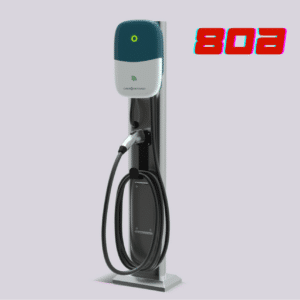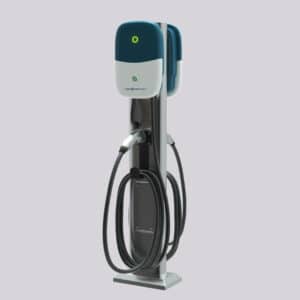- Understanding EV Charging Stations
- Safety Standards and Regulations
- Potential Safety Risks
- Mitigating Safety Risks
- Case Studies and Real-World Examples
- Resident Education and Awareness
- Insurance and Liability Considerations
- Future Trends and Innovations
- Conclusion
As electric vehicles (EVs) gain popularity, the demand for EV charging infrastructure is also on the rise. Condominiums, which house many residents who might not have access to private garages, are increasingly installing EV charging stations to meet this demand. However, this brings about a crucial question: Are electric car charging stations in condos safe? This article aims to explore the safety aspects of EV charging stations in condominiums, addressing potential risks, mitigation strategies, and best practices.
Understanding EV Charging Stations
EV charging stations come in various types, primarily categorized into Level 1, Level 2, and Level 3 chargers. Level 1 chargers use a standard 120-volt outlet and are the slowest, typically providing 2-5 miles of range per hour of charging. Level 2 chargers operate at 240 volts, offering a faster charge rate of 10-20 miles of range per hour. Level 3 chargers, or DC fast chargers, are the most powerful, delivering up to 80% charge in 30 minutes.
In condo settings, Level 2 chargers are the most common due to their balance of installation cost and charging speed. These chargers are usually installed in shared parking garages or designated EV parking spots, providing convenient access for residents.
Safety Standards and Regulations
Safety is paramount when installing EV charging stations in any setting, especially in condos where multiple residents share the facilities. To ensure safety, EV charging stations must comply with several standards and regulations:
- UL Certification: Underwriters Laboratories (UL) certification is a key safety standard for electrical equipment, including EV chargers. UL-certified chargers have undergone rigorous testing to ensure they meet safety standards.
- NEC Codes: The National Electrical Code (NEC) provides guidelines for the safe installation of electrical wiring and equipment. Compliance with NEC codes is essential to prevent electrical hazards.
- Local Building Codes: Each locality may have specific building codes that govern the installation of EV charging stations. These codes ensure that the installation meets local safety and construction standards.
Professional installation and inspection are critical to ensuring that the EV charging stations adhere to these standards and regulations.
Potential Safety Risks
Despite the benefits of EV charging stations, there are potential safety risks that need to be addressed:
- Electrical Risks: Electrical malfunctions or faults can pose significant risks. These include short circuits, grounding issues, and overloading the electrical system. Proper wiring and ensuring the condo’s electrical infrastructure can support the additional load are crucial to mitigating these risks.
- Fire Hazards: Fire hazards are another significant concern. Overheating of chargers or electrical components can lead to fires. It is essential to install chargers with built-in thermal management systems and fire protection features to prevent such incidents.
- User Safety: User safety during the charging process is also a critical consideration. Risks include electric shock and accidental injuries. Chargers with features like automatic shut-off, ground fault protection, and user-friendly interfaces can enhance safety for all users.
Mitigating Safety Risks
To mitigate these safety risks, several measures can be implemented:
- Proper Installation: Hiring qualified and certified electricians for the installation is essential. These professionals ensure that the installation complies with all relevant safety standards and regulations. Proper installation involves assessing the existing electrical infrastructure, selecting suitable charging equipment, and ensuring all connections are secure and correctly grounded.
- Regular Maintenance: Routine inspections and maintenance are crucial for the ongoing safety of EV charging stations. Maintenance practices include checking for wear and tear, ensuring all components are functioning correctly, and updating software to address any vulnerabilities. Regular maintenance helps identify and rectify potential issues before they become serious problems.
- Safety Features: Installing chargers with essential safety features can significantly enhance safety. These features include:
- Surge Protection: Protects the charging station and connected vehicles from power surges.
- Overcurrent Protection: Prevents the system from drawing too much current, reducing the risk of overheating.
- Ground Fault Protection: Detects and interrupts any leakage currents, protecting users from electric shocks.
Case Studies and Real-World Examples
Several condominiums have successfully implemented safe EV charging stations, providing valuable insights and best practices:
- Green Residences: A condo in California installed Level 2 chargers in its parking garage. The installation included comprehensive safety measures such as fire-resistant wiring, surge protection, and regular maintenance schedules. As a result, residents have had a safe and reliable charging experience.
- EcoLiving Condos: Located in New York, this condo incorporated advanced safety features in their EV charging stations, including thermal management systems and automatic shut-off mechanisms. The condo association also organized educational sessions for residents to ensure safe usage.
These case studies highlight the importance of thorough planning, professional installation, and ongoing maintenance in ensuring the safety of EV charging stations in condos.
Resident Education and Awareness
Educating residents about the safe use of EV charging stations is crucial. Condo management should provide guidelines and conduct awareness sessions to inform residents about safe charging practices. Key points to cover include:
- Properly connecting and disconnecting the vehicle from the charger.
- Reporting any issues or malfunctions immediately.
- Following the manufacturer’s instructions and safety guidelines.
Creating a culture of safety and awareness can significantly reduce the risk of accidents and ensure that residents use the charging stations responsibly.
Insurance and Liability Considerations
Installing EV charging stations in condos also involves insurance and liability considerations. Condo associations should:
- Review their insurance policies to ensure coverage for EV charging stations.
- Understand the liability implications for any incidents related to the charging stations.
- Ensure that all installations and operations comply with local regulations to minimize legal risks.
Adequate insurance coverage and a clear understanding of liability can protect the condo association and residents in case of any unforeseen incidents.
Future Trends and Innovations
The field of EV charging is continuously evolving, with new technologies and innovations aimed at enhancing safety and efficiency. Future trends may include:
- Wireless Charging: Eliminating cables can reduce trip hazards and improve user safety.
- Smart Charging Systems: These systems can monitor and adjust charging rates to prevent overloading and overheating.
- Enhanced Safety Standards: As the industry grows, safety standards and regulations are likely to become more stringent, further improving safety.
Staying informed about these trends and being prepared to adopt new technologies can help condo associations future-proof their investments and maintain high safety standards.
Conclusion
Electric car charging stations in condos can be safe when installed and maintained correctly. By understanding potential risks, complying with safety standards and regulations, and implementing robust safety measures, condo associations can provide safe and reliable EV charging facilities for their residents. Educating residents and ensuring adequate insurance coverage further enhance safety and protect against potential liabilities. As the popularity of electric vehicles continues to grow, installing EV charging stations can not only meet the demand but also contribute to a sustainable and modern living environment.
Featured Products
-
 Add To Cart Select options
Add To Cart Select options
Nick Zamanov is a head of sales and business development at Cyber Switching. He is an expert in EV infrastructure space and he is an EV enthusiast since 2012, Since then Nick strongly believed that electric vehicles would eventually replace Internal Combustion Engine (ICE) cars.



